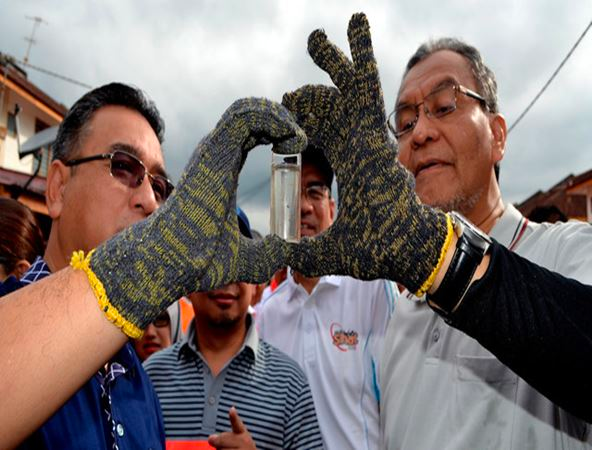Health ministry turning to drones to combat Aedes mosquitoes
MELAKA, Nov 11 (Bernama) -- The Ministry of Health intends to extend the use of drone technology at state health departments nationwide in an effort to combat Aedes mosquitoes and control dengue outbreaks.
Its minister Datuk Seri Dr Dzulkefly Ahmad said the use of drone technology was seen to help detect Aedes mosquitoes more effectively, especially in areas where it was difficult to gain access especially at high points including rooftops.
He said based on preliminary information, the allocation to purchase the drones could be sought through the ministry through provisions in Budget 2019.
"I admit that the use of drones to detect the Aedes mosquito breeding grounds is something new and the device can be purchased at RM20,000 per unit.
"I am confident that with the additional allocation provided for the Health Ministry, the state health departments should be able to afford the drones," he told reporters after officiating the Mega 2.0 Gotong-Royong Programme to fight against Aedes mosquitoes here today.
Over 300 volunteers comprising students, members of the Civil Defence Force, Malaysian Volunteers Department and Hang Tuah Jaya Municipal Council worked together to clean up the housing area at Taman Saujana Seksyen, Bukit Katil here.
Also present were Chief Minister Adly Zahari and State Health and Anti-Drug committee chairman Low Chee Leong.
Meanwhile, Dr Dzulkefly said dengue cases in the country had reduced to 62,974 cases or by 17 per cent during Jan 1 to Nov 3 period, from 76,054 cases in the corresponding period last year.
He said dengue death toll too has recorded a decline from 108 cases or 33 per cent this year compared to 162 cases in the corresponding period last year.
"In Melaka the number of dengue cases reported in the corresponding period this year saw a decrease by 58 per cent to 547 cases compared to 1,290 cases last year. So far no fatal case has been recorded in Melaka as compared to one death last year, " he said.
He said during the corresponding period this year 241 dengue cases were recorded in Perlis, Kedah (1,650 cases), Penang (4,500 cases), Perak (2,293 cases), Selangor (35,173 cases), Kuala Lumpur and Putrajaya (6,140 cases) Negeri Sembilan (1,371 cases), Melaka (547 cases), Johor (4,810 cases), Pahang (809 cases), Terengganu (408 cases), Kelantan (1,523 cases), Sarawak (586 cases) Labuan (95 cases).
According to Dr Dzulkefly the decline in dengue and fatal dengue cases was due to the ongoing efforts to promote public awareness on the danger of the Aedes mosquitoes and precautionary measures taken which included the communication for behavioural impact (COMBI) programme.
"So far 3,082 COMBI programmes have been implemented nationwide with the involvement of 63,000 volunteers and the programme would continue to be implemented with the cooperation of residents’ committees," he said.
In another development, he said the investigation into sexual harassment case involving a department head in a hospital in the Klang Valley will be presented to him next week before appropriate action was taken.
"The report is ready and will be forwarded to me. The Public Service Commission will take the next step of action. I cannot disclose any further details on the action to be taken," he said.
-- BERNAMA
HealthEdge
EXCLUSIVE

Pet Vaccination, Public Awareness And Surveillance Key Towards Rabies-free Southeast Asia - Experts
KUCHING, Dec 11 (Bernama) -- The goal of making Southeast Asia free from human rabies can be achieved through a total understanding of the disease, how it can be prevented and responsible pet ownership among communities, say experts.
read more ››IN FOCUS

TAVI KAEDAH BAIK PULIH INJAP JANTUNG TANPA PEMBEDAHAN




